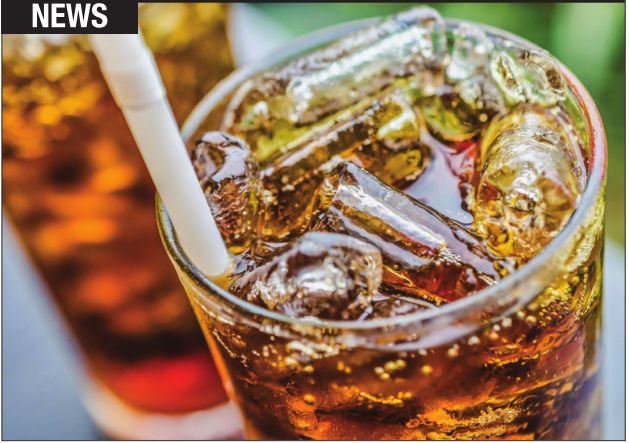
One bill in a bipartisan package of tax measures proposed as a way to break the state’s budget impasse aims to impose increased taxes on sugar-sweetened beverages.
Senate Bill 009, the Sugar-Sweetened Beverage Tax Act, was introduced by Sen. Toi Hutchinson on Jan. 11. The bill pledges to increase the sales tax on sugar-flavored beverages such as juices, tea, coffee and soda drinks, at a rate of one cent per ounce. The tax is projected to increase the cost of these beverages by 50 percent. According to a recent press release by Pepsi Mid-America, a two-liter bottle of soda would cost nearly 70 cents more, a 12-pack of soda could increase by $1.44 and a 12-pack of sweet tea would surge by $2.04 if the bill is passed into law.
For a state mired in debt, the bill could be seen as a much-needed source of revenue. Last November, an ordinance to impose similar taxes was passed in Cook County. Effective July 1, 2017, the law is expected to generate $224 million per year for the county. (See “Cook County Approves Soda Tax,” by Paris Schutz, Nov. 10, Chicago Tonight) Not only could the sugar tax proposal help the state out of its financial crisis, it could curb disturbing health trends. A report released by the State of Obesity in September showed that the state’s adult obesity rate was 30.8 percent in 2015. This was an increase from 20.4 percent in 2000, and from 12.1 percent in 1990 (see “Better Policies for a Healthier America: The State of Obesity in Illinois”). Rhonda Andrews, president of the Illinois Association of Public Health Administrators, commented on adult obesity in the state. “To this date in Illinois, approximately 62.2 percent of adults are overweight and one in three children are overweight or obese,” said Andrews. “I can personally tell you in southern Illinois these rates are even higher.”
Andrews said these high rates can be partly attributed to excess sugar intake. “Sugary drinks are the number one source of added sugar in the American diet,” Andrews stated. “Adults who drink one to two servings per day are 26 percent more likely to develop type-2 diabetes than those who drink zero to one per month.”
Andrews added that she supports the Sugar-Sweetened Beverage Tax Act proposal, arguing that decreasing the amount of sugar in a person’s diet will decrease the likelihood of many chronic diseases, such as cancer and diabetes. “Since a decrease in sugar intake will help to prevent death, disease and disability in our community’s residents, we are in favor of the proposal,” Andrews said. “Legislators are also interested in reducing the death, disease and disability of their constituents so I am optimistic that this proposal will pass.”
However, Rob Karr, president of the Illinois Retail Merchants Association, sees the sugar tax measure as damaging to the state’s tax base. “It certainly will set a new standard for bad tax policies,” said Karr. “It’s not a reliable tax source. It’s an administrative nightmare and it continues to profit a narrow base when Illinois needs to go in the opposite direction.”
Karr said interest groups pushing for the sugar tax proposals have intentions that aren’t in line with the state’s tax regulations. “They are certainly entitled to push forward, but they don’t have the best interests for tax policies in the state of Illinois,” Karr said. Andrews sees it differently. “Public health is interested in a healthier Illinois,” she said. “If we have a healthier population, chronic disease rates go down right along with health insurance premiums. This is a win-win for the state of Illinois and our communities!”
Contact Alex Camp at [email protected]